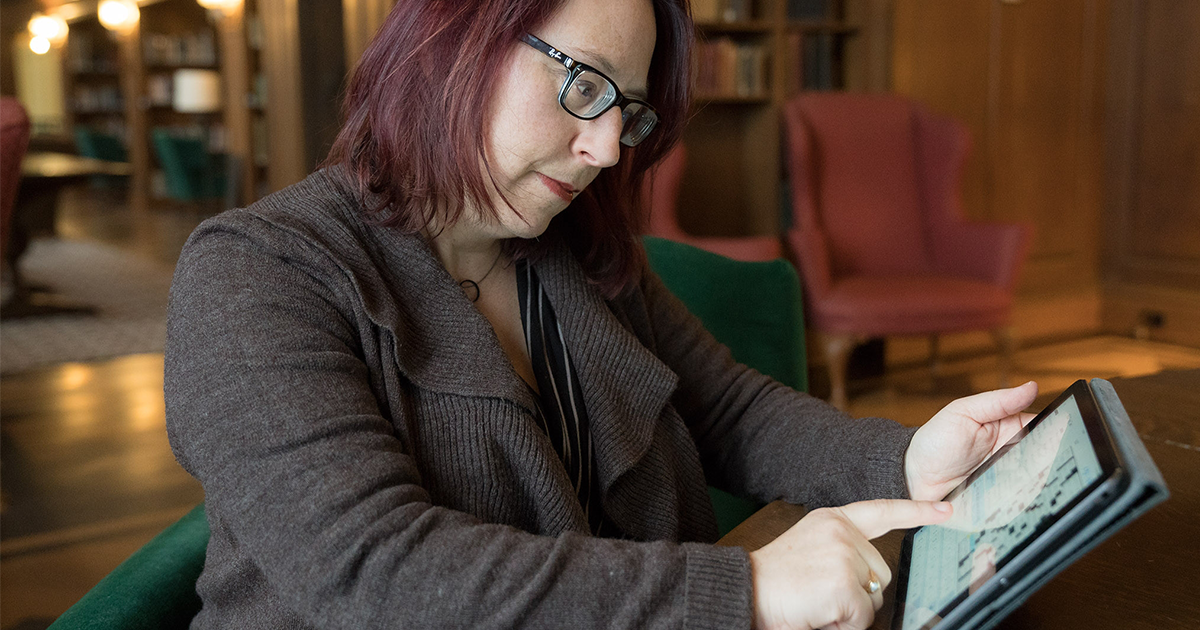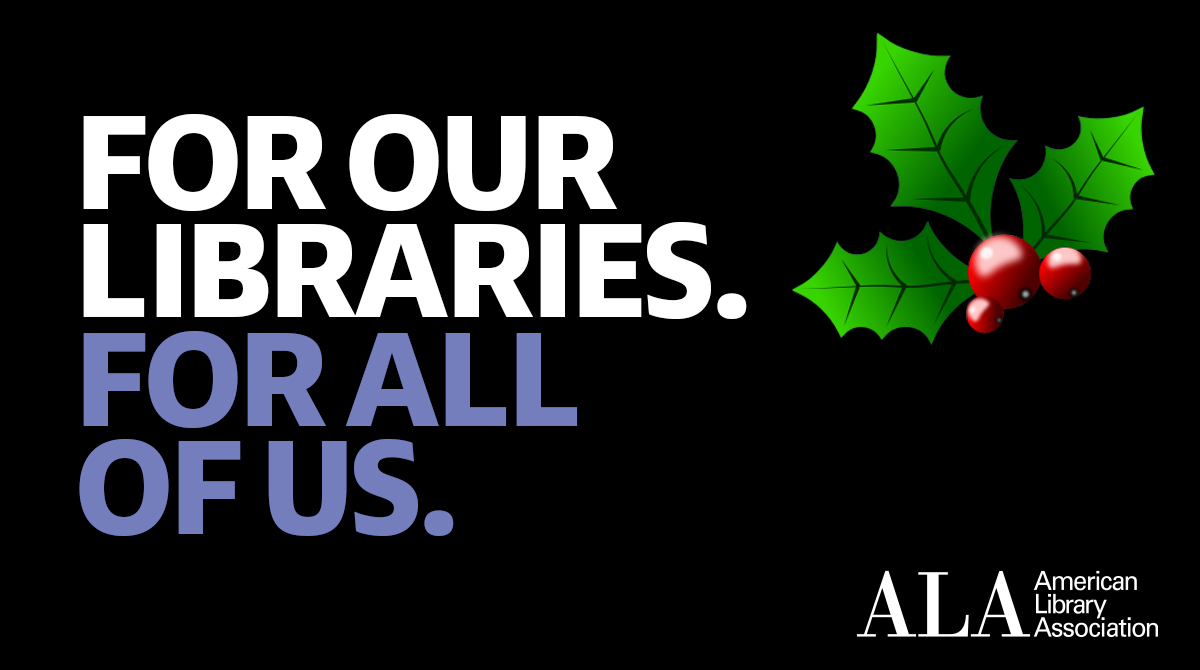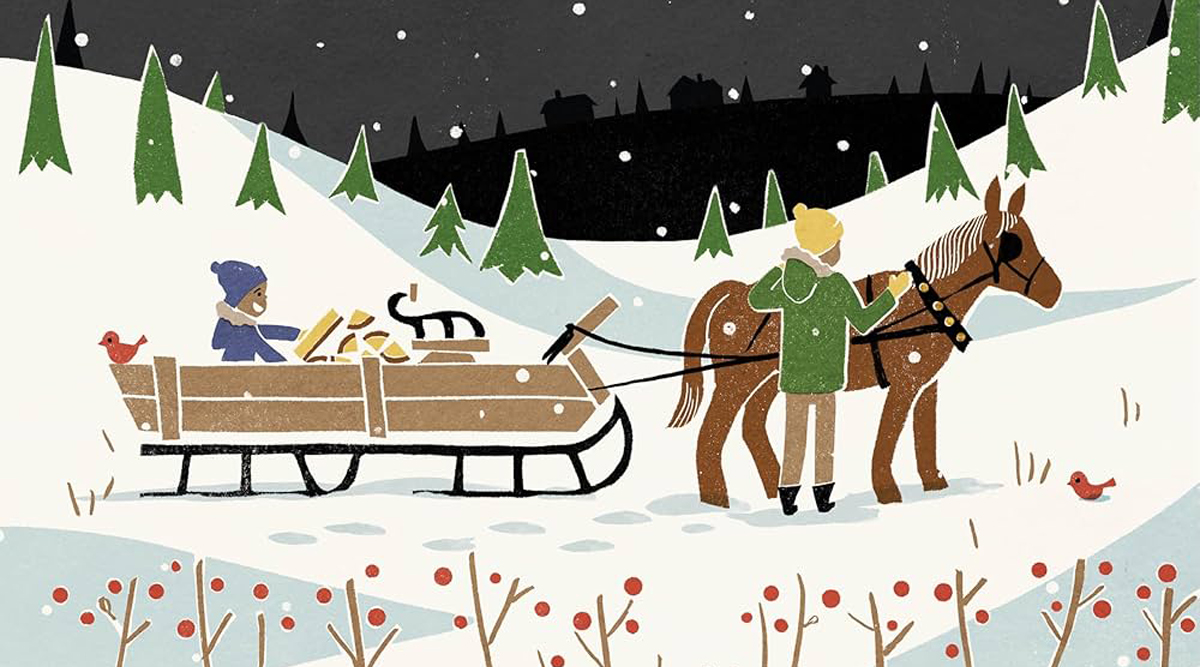If you’re a crossword fan, you’ve probably come across work by Laura R. Braunstein, digital humanities librarian at Dartmouth College: her puzzles have been published in the New York Times, the Chronicle of Education, and more. She’s also a co-founder of The Inkubator, a project that challenges the gender imbalance in the crossword world. The site publishes puzzles exclusively by female creators, especially those whose content defies the male-dominated sensibilities of traditional newspaper crosswords.
Below, I Love Libraries chats with Braunstein about libraries, crosswords, social justice, and more.
Are there skills or personal qualities you’ve drawn from in both your career as a librarian and your work in the crossword world? Do you think being good at one makes you better at the other?
It helps in both areas to be curious, to listen, and to be kind. And by that last one, I think of kindness as intellectual generosity and humility-I might not have all the answers, but I’m willing to learn, and to help other people learn too.
Do any of the crosswords you’ve created contain library-related clues?
I had METADATA as an entry, and I clued it with [Information about information]. METADATA is a nice word for crosswords because it has alternating vowels and consonants.
Do people on campus know you’re big in the crossword world? Do you ever talk crosswords with the students, faculty, and staff you work with at your library?
About five years ago, I used to see a student working on editing his own puzzles in the reference room. We struck up a conversation, and stayed in touch over the years, and he helped me with some of my first puzzles. I’ve had other students who are interested in learning to construct get in touch with me for mentoring. And then a champion at a crossword tournament I helped organize turned out to be one of the staff at the local public library where I used to be a trustee.
Do you have any advice for how people can use their libraries to become better at solving or creating crosswords?
I think just being curious and knowing that solving puzzles is a skill that anyone can develop through practice are good ways to become better. It also depends on how you define “better”-there are crosswords published for every age and interest and skill level, not just the classic New York Times crossword. Do you want to have fun solving crosswords? Does learning something new excite you and bring you joy? Use the library’s resources to seek knowledge that challenges your boundaries and takes you out of yourself. If you encounter a word or a person in a puzzle you haven’t seen before, that’s an opportunity for growth and connection.
You’ve done so much to promote inclusivity and representation for women in the crossword community-meanwhile, librarianship is known for being an overwhelmingly female field. What is it like navigating that contrast?
Libraries may be “predominantly female” but they are not “female dominated”-namely, women (and nonbinary or genderqueer people) may be the majority in terms of who staffs libraries, but power and leadership at the highest levels tends to be male, particularly in academic libraries. It’s the same in crosswords: at three out of four of the major newspaper crosswords, the editor is a boomer-aged white man, although there may be some women and younger people on his staff. Both libraries and crosswords-in terms of constructors and editors-also tend to be overwhelmingly white. What does that say about what is considered normative, about who is centered in both fields? Or about who belongs in both fields? Or about whose knowledge is valued, about whose culture ends up on library shelves, at book groups, or in crossword puzzle themes, entries, and clues?
Library historians have shown how white supremacy and patriarchy are built into the history and structure of libraries-and as long-lasting, socially and culturally entrenched institutions, they’re resistant to structural change. Similarly, in crosswords, inclusivity isn’t just a matter of publishing a few more women or adding the names of a few Black artists to puzzles. So I’d rather ask a question in response to your question, which is: How should those who have traditionally benefited from white supremacy and patriarchy work to make institutions or cultures like libraries and crosswords into places and communities where Black people, queer people, gender non-conforming people, indigenous people-anyone who has been excluded for being different-want to be? How do we change so that everyone feels seen and valued for who they are? In my work as a digital librarian, and in my work constructing and editing puzzles, I ask myself every day: how are you, personally, working to make your communities more just and inclusive?
Is there anything else you’d like the public to know about librarians, libraries, and crosswords?
Keep reading, keep solving. See both as opportunities to challenge yourself and the people around you, and to work toward justice and keeping power accountable.
For more stories about America’s libraries and libraries, subscribe to the I Love Libraries newsletter. Photo by Eli Burakian, courtesy of Dartmouth College.




